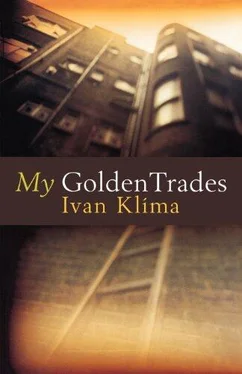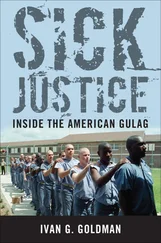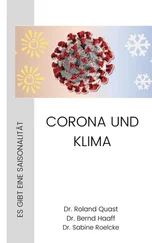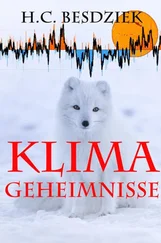Ivan Klima - My Golden Trades
Здесь есть возможность читать онлайн «Ivan Klima - My Golden Trades» весь текст электронной книги совершенно бесплатно (целиком полную версию без сокращений). В некоторых случаях можно слушать аудио, скачать через торрент в формате fb2 и присутствует краткое содержание. Год выпуска: 1998, Издательство: Granta UK, Жанр: Современная проза, на английском языке. Описание произведения, (предисловие) а так же отзывы посетителей доступны на портале библиотеки ЛибКат.
- Название:My Golden Trades
- Автор:
- Издательство:Granta UK
- Жанр:
- Год:1998
- ISBN:нет данных
- Рейтинг книги:4 / 5. Голосов: 1
-
Избранное:Добавить в избранное
- Отзывы:
-
Ваша оценка:
- 80
- 1
- 2
- 3
- 4
- 5
My Golden Trades: краткое содержание, описание и аннотация
Предлагаем к чтению аннотацию, описание, краткое содержание или предисловие (зависит от того, что написал сам автор книги «My Golden Trades»). Если вы не нашли необходимую информацию о книге — напишите в комментариях, мы постараемся отыскать её.
My Golden Trades — читать онлайн бесплатно полную книгу (весь текст) целиком
Ниже представлен текст книги, разбитый по страницам. Система сохранения места последней прочитанной страницы, позволяет с удобством читать онлайн бесплатно книгу «My Golden Trades», без необходимости каждый раз заново искать на чём Вы остановились. Поставьте закладку, и сможете в любой момент перейти на страницу, на которой закончили чтение.
Интервал:
Закладка:
When the diminutive factory surveyor returned we asked him about this catastrophe.
"That's bullshit,' he said. 'The gunpowder section blew up two years ago; it happened during the lunch break. Five dead and a couple of wounded. Mostly cuts and bruises. There was glass flying around all over the place,' he said, warming to the memory. 'But no one lost an eye. That's the thing, my friends, when you see a flash of light around here — even if it's only a thunderstorm — cover your eyes.'
While we were waiting for a yard engine to shunt some cisterns out of the way that, as far as we know, might have been filled with dynamite, trinitrotoluene or even nitroglycerine, he explained to us how in the aniline department they only took women over the age of forty and, even then, they had to sign a statement saying they're aware of the dangers.
'What are the dangers?'
'A hundred and eighteen per cent increased chance of cancer of the bladder.'
'And they sign?'
'Of course they do. They get risk money every month — at least four hundred crowns.'
Although they were not marked with stakes, we found the first two points easily. I gave them a fresh coat of paint, and painted red arrows on the surrounding trees.
The third point was on a wooded knoll just inside a high barbed-wire fence. It was a double fence of the kind they
put around prison camps. There was even a watch-tower. The oak and birch trees in the woods had already turned yellow and brown and seemed to be exhaling a chemical stench. The surveyors were poring over the map again, arguing. Eventually they came to the conclusion that one of the stones lay outside the fence.
We set the tripod up over the accessible stone and returned to the car. We turned on to the road, passed a high cooling tower and an assembly of boilers and pipes in which something liquid I didn't want to know about was being created, drove through a side gate and came to a halt at the edge of the woods. We took another tripod out and very carefully, as though it were sacred, the surveyor brought out the case containing the spirit level. Even outside the factory, enormous pipes supported on low trestles snaked through the trees. In several places, a vapour of some sort was escaping from them.
We positioned the level over the stone with great effort and the surveyor tried to get a clear view of the tripod we'd left on the knoll inside the fence. All we could see was a thicket of tree trunks, large and small. Using the machete and the axe, we chopped a trail right to the fence where, with our combined strength, we felled a spruce tree. We returned to the stone pillar and even I could now see the yellow leg of the tripod on the small knoll across the way.
My young boss looked dissatisfied and widened the swathe to the fence with the machete. Then he ordered me to stay with the expensive equipment while he drove back around to the other side of the fence.
Left alone, I could hear the thud of distant explosions and the honking of yard engines, but otherwise it was silent. It was near the end of October and the birds, if any
survived here, weren't singing. A watery sun was beginning to force its way through the mist above the treetops. Occasionally, with a quiet plop, a toxic drop of dew would slip off the edge of a leaf.
Mystery is a direct insult to our self-assurance. If there were no longer any mystery, we imagine that a beautiful and safe sense of certainty would inhabit the world (even though we don't know what it would be certainty about). We have thus become accustomed to celebrating as giants those who have worked hardest to rid us of mystery. After all, they have led us out of darkness where, at any moment, we might have been assaulted by the inexplicable, where pestilence and witches lie in wait. It never occurs to us that they have also set us down here in the middle of a bland superhighway planted with signs. We pass our lives rushing from sign to sign.
One day we will come up against the limit of the tolerable and the possible. It seems to me that this day is already drawing near. Man, it would seem, cannot remain in one place. The moment he finds himself at a border he cannot go beyond, he must give up. But where could he return to now?
In the distance, I caught sight of the surveyor's rust-coloured sweater. For a while, it flitted here and there, then I heard the familiar voice calling to me to throw the tools over the fence. More branches and trunks were felled; I was now able to make out the legs of the tripod. Still, however, my boss could not see the two discs on the ends of the apparatus on my side of the fence.
Again and again, following his instructions, I lopped off branches that seemed to block his view, until he discovered that the real impediment was the trunk of a stately birch.
He came down the hill with his fellow surveyor and, for a while, across the fence, we discussed what we should do. The two of them decided they would have to cut the birch down.
I objected. We couldn't chop down such a magnificent tree simply because we wanted to.
The factory surveyor looked at me with contemptuous astonishment. 'Here?' he said, pointing up at the diseased treetops.
Later, I thought of what I should have said: 'That's exactly why we shouldn't.' Meanwhile, they had thrown me a saw over the barbed wire.
As a student, I had cut down trees infested with bark-beetles, and I even felt proud of being able to do such manly work, bringing down a fifteen-metre spruce right where I wanted it to fall. I tried to remember whether I'd felt any regret for the tree.
I walked over to the birch, which as yet knew nothing of its fate, and looked up into its crown. The sky had cleared, and the yellow leaves seemed to be radiating their own light. I remembered that the captive spirits of innocent maidens lived in birch trees. I could not have put my arms around it. The tree was at least two metres in diameter. I took the axe and drove it into the white bark to make a notch in the side I wanted it to fall towards, then I grasped the saw and began to cut. The saw bit into the wood, the white sawdust spilled out and I breathed in its smell.
As the saw cut deeper into the wood, the trunk resisted more and more. It was its only defence — to squeeze the blade tightly and not let it go. I decided to pull the saw out and start cutting from the opposite side. Sweat was running down my forehead. I took off my jacket and went on
working. The tree groaned and creaked silently. I could hear the terrified, astonished whispering of the leaves in the crown.
I pulled the saw out and rested a while. There were quiet footfalls, and when I looked in the direction they were coming from, I saw a soldier with a gun. He was approaching slowly along a path beside the fence. When he walked past, he looked at me without stopping or even slowing down.
The trunk, now full of desperate determination, was binding the saw blade on both sides.
I hated myself for getting forced into this job. What good is all our surveying? What was the use of us pounding through the corn? Why did I have to take the life of this pure, white tree? Those who obey contemptible orders are themselves contemptible.
But my regret, as often happens in life, had come too late. The tree was already dying.
They called over from the other side of the fence, wanting to know how far through I was, but I didn't answer. I pulled the saw out again, took the axe and began with a fury to widen the cut. Then I pushed against the tree to test its resistance. But the birch was still firm, as though its veins had not yet been cut.
Man has struggled with nature from the beginning, killing animals and clearing forests, but he took life so he himself could survive. We take life so we can erect the works of the age of engineering. We do not kill from an instinct to preserve life, but from an instinct that leads us to extinction.
Читать дальшеИнтервал:
Закладка:
Похожие книги на «My Golden Trades»
Представляем Вашему вниманию похожие книги на «My Golden Trades» списком для выбора. Мы отобрали схожую по названию и смыслу литературу в надежде предоставить читателям больше вариантов отыскать новые, интересные, ещё непрочитанные произведения.
Обсуждение, отзывы о книге «My Golden Trades» и просто собственные мнения читателей. Оставьте ваши комментарии, напишите, что Вы думаете о произведении, его смысле или главных героях. Укажите что конкретно понравилось, а что нет, и почему Вы так считаете.












